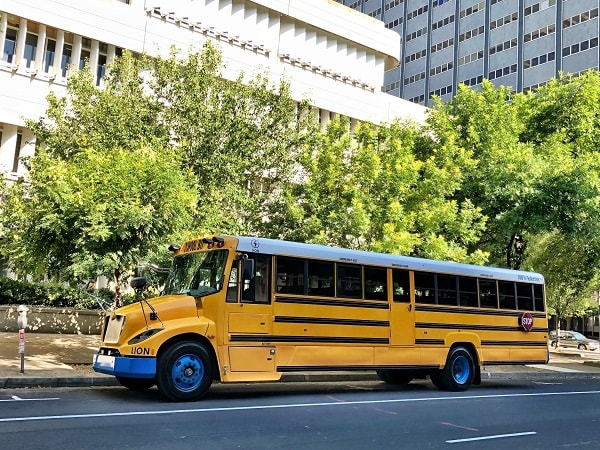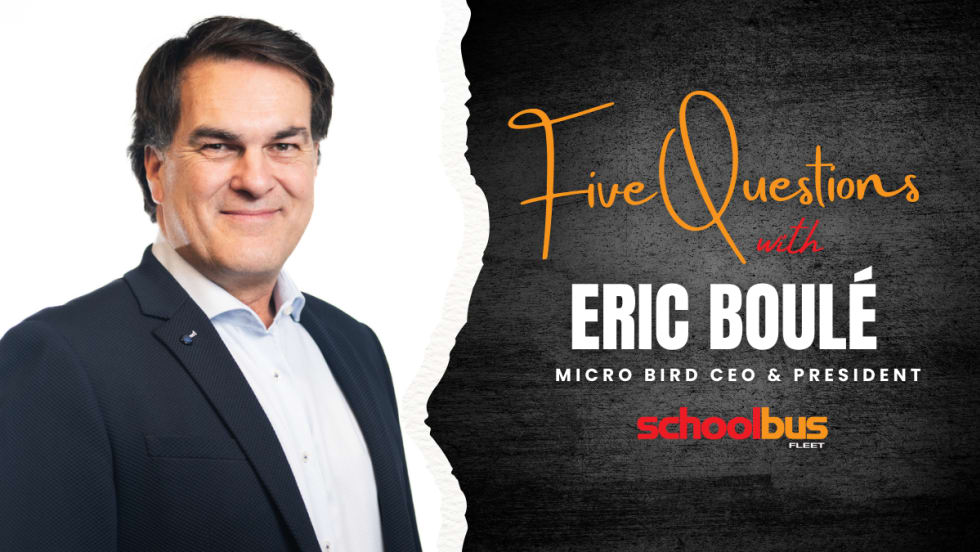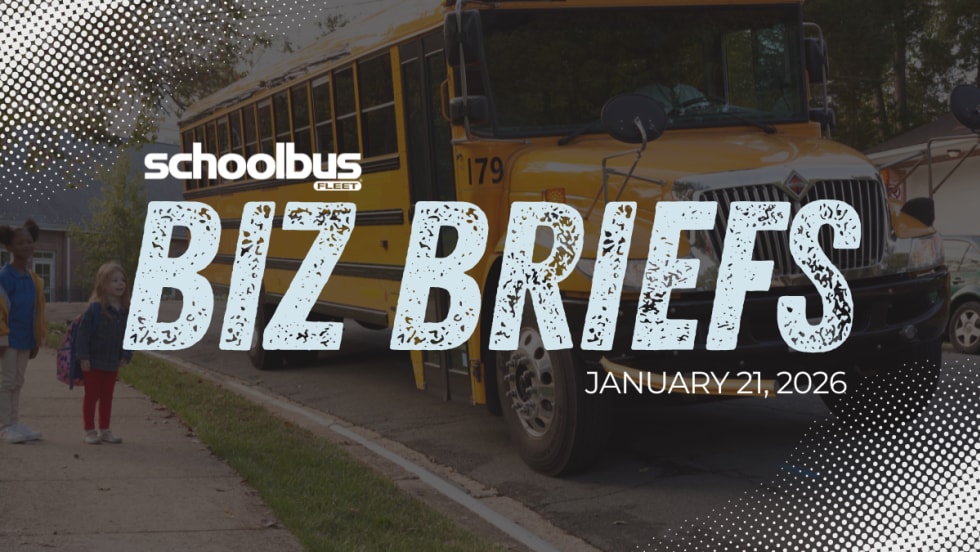The School District of Philadelphia is making strides to transition its all-diesel school bus fleet to gasoline and electric.
William Rosetti, the district’s fleet manager, told School Bus Fleet that the district recently purchased a total of 16 gasoline-powered school buses from Wolfington Body Co., an IC Bus dealer based in Chester Springs, Pennsylvania.
The buses, which can seat up to 48 passengers, are equipped with wheelchair lifts and collision mitigation technology from Bendix Commercial Vehicle Systems, according to Rosetti.
“We went with Bendix’s Wingman Fusion to help with braking, lane changes, and weather conditions, which are all really key for safety,” he noted. “The extra money that we spend on that could help prevent one accident or stop one injury, and that is worth it to us.”
In addition to the buses’ enhanced safety features, Rosetti said that the gasoline buses will help the district reduce its maintenance and fuel costs.
“We’re expecting less warm-up times, less idling times, and more efficiency out of these buses,” he told SBF. “The comparison of servicing a diesel versus a gasoline bus is that we're only going to be doing maybe oil changes, instead of doing oil changes, DPF filters, and more. The cost savings are going to be astronomical, especially for fuel.”
Currently, diesel fuel in Pennsylvania costs an average of $3.54 per gallon, while unleaded gasoline is about $3.18 per gallon, according to AAA.
“It’s a pretty big price difference, so this will definitely help us in being able to focus our funds on other maintenance priorities,” Rosetti added.
He also said the extra savings could help aid in the district’s plans to add more gasoline, and even electric buses to its over 400-vehicle fleet — adding approximately 4% electric buses per year and 2% to 3% gasoline buses per year to the fleet.
On Tuesday, the School District of Philadelphia conducted an electric school bus demonstration hosted by The Lion Electric Co.
Prior to the demonstration, the district announced the acquisition of five electric school buses for the 2021-22 school year through the support of the Diesel Emissions Reduction Act (DERA) and its commitment to continue expanding its electric bus fleet by purchasing five per year to replace aging diesel buses, according to a news release posted on the School District of Philadelphia’s website.
The all-electric buses are reportedly the first of their kind in Pennsylvania.
Just like the gasoline buses, Rosetti told SBF that the electric buses can seat up to 48 passengers and are equipped with wheelchair lifts. He also said the buses produce zero emissions and have an operating range of up to 120 miles on a single charge, which can accommodate the district's routes that are on average about 50 miles.
Both the gasoline and electric buses are expected to be delivered to the School District of Philadelphia in October 2021.
View a short video clip of the electric school bus demonstration, posted on the School District of Philadelphia’s Facebook page, below.














